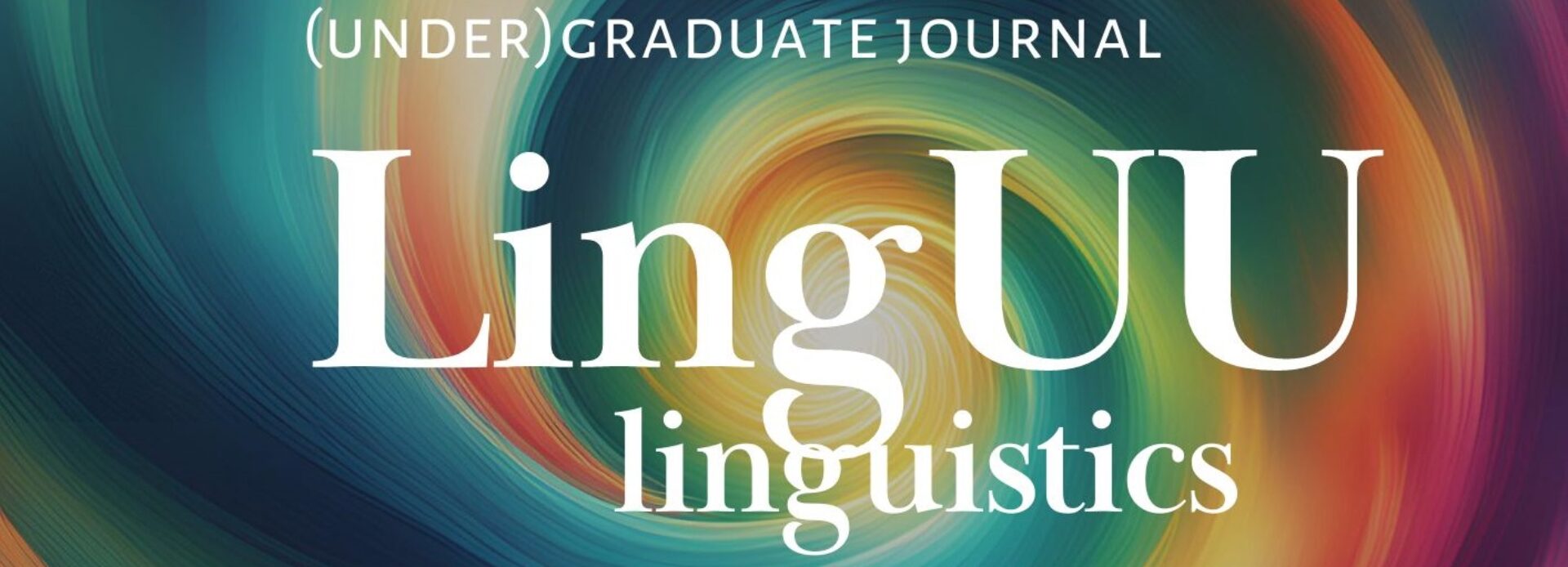The new issue of LingUU Journal is now published. It marks the 10th issue ever published by the journal, which celebrates its 5th anniversary this year. LingUU 6.1 features research articles from a wide range of linguistic topics, all written, reviewed, and edited by students. You can now read the full issue here, browse through the articles here, or buy a paper copy here.
In their paper, Liv Rendl explores the recent writing forms for gender-inclusion and gender-neutrality in the French language. The author presents the case for inclusive and neutral writing as a tool of embodiment, based on the works of Alpheratz and Greco. They illustrate the current state of the French language in terms of its lack of inclusivity and neutrality, and demonstrate how it may be developed with gender-inclusive and gender neutral writings. It is a very current and interesting case study due to the académie française consistently rejecting to accept these writings within the French language.
Carla Rijlaarsdam’s paper is an exploratory study which takes a closer look at annotator disagreements in the Stanford Natural Language Inference Corpus (SNLI), in order to investigate the process of human inference-making. By analysing and subsequently categorising the disagreements, it becomes possible to find explanations as to why they occur. These insights can then be used to train Natural Language Processing (NLP) models of any kind. Analysis and annotation of disagreement pairs result in observable patterns. This also helps the composition of annotation guidelines, which are then tested with volunteer super annotators. A second, more refined version of the guidelines is also proposed.
Mila Irmawati, Levi Remijnse, and Ayse Gunal use a Self-Paced Reading (SPR) Task to investigate the effect of cognates’ word class on the cognitive cost of code-switching. Successive Dutch-English bilinguals read sentences with switches from Dutch to English occuring after a cognate but within a single sentence. Their results show no facilitation effect of either nouns or verbs as cognates.
Joeri Vinke provides a simpler analysis that accounts for phonological processes in Dutch fricatives: final devoicing and no regressive voice assimilation. The author argues that a classical rule-based analysis that relies on an underlying voice distinction is not sufficient to describe the Dutch data. Relying on the distinction in length provides a more minimal account of the behaviour of Dutch fricatives.
Eleni Zimianiti proposes that semantic memory may play a mediating role in Accelerative Integrated Method (AIM), a pedagogical approach that emphasises language acquisition via embodied experience. She also discusses the implications of AIM.
In our third part of our Research Internships in Times of Global Pandemic series, three students report on their research internships. Eleni Zimianiti did her internship at the MPI for Psycholinguistics in Nijmegen, where she designed an experiment about statistical learning. Marijke van den Berg joined an interdisciplinary research project on language acquisition at UiL-OTS, studying the prosodic entrainment between mothers and 13-year-old children. Victoria Reshetnikova developed a statistical word segmentation model in Python, working on the interface of language acquisition and computational modelling.
The Daily Linguist features a collection of recommendations and links that are of interest to linguistics students, such as book recommendations, learning opportunities, and in this edition, linguistic games.


